In British slang, "ninny" refers to someone who's perceived as lacking wisdom or sense. This term has undergone a fascinating evolution, shifting from a term of endearment to its current usage as a mild insult. Its etymology is object of scholarly debate, with connections to Romance languages suggesting a rich, complex history. Modern usage often sees "ninny" employed more lightly than its historical connotations might suggest, embodying a blend of humor and fond exasperation rather than harsh criticism. Variants and synonyms, including "twit" and "numpty," reflect regional linguistic flavors, adding richness to its application. Unpacking the layers of "ninny" offers intriguing insights into linguistic and cultural dynamics.
Key Takeaways
- In British slang, 'ninny' refers to someone who is foolish or lacks common sense.
- Historically, 'ninny' evolved from a term of endearment to a mild insult.
- Modern usage often employs 'ninny' in a light-hearted or teasing manner.
- It shares similarities with terms like 'twit' and 'numpty' in denoting foolishness.
- Pronunciation and contextual use may vary across different regions of the UK.
The Etymology of 'Ninny'

Tracing the etymology of 'ninny' reveals its evolution from a term of endearment to a pejorative label, reflecting broader linguistic and societal shifts. You'll find that origin debates around 'ninny' are as complex as they're fascinating. Initially, it might appear that 'ninny' simply sprang into existence within the English language with no clear precursor. However, a deeper exploration into its linguistic relatives offers clues to its ancestral roots.
The term 'ninny' is believed by some scholars to be a variant of 'innocent,' abbreviated and altered through colloquial use, signifying someone naive or simple-minded. This theory is bolstered by examining linguistic relatives in Romance languages where similar connotations of innocence and simplicity are found in diminutives and affectionate terms. Another perspective suggests that 'ninny' could have evolved from 'ninni,' a term found in other European languages with meanings that align closely to 'fool' or 'simpleton.'
These origin debates highlight the fluid nature of language, how words morph in meaning, sound, and application over time. The transformation of 'ninny' from an affectionate nickname to a term of derision encapsulates a linguistic journey that mirrors societal changes in attitudes towards intelligence, naivety, and simplicity.
Understanding 'ninny' through its etymological journey and linguistic relatives not only enriches your grasp of this specific term but also offers insight into the dynamics of language evolution itself. As you explore the origins and shifts in meaning, you're witnessing the tapestry of human communication being woven across generations.
Historical Context and Evolution
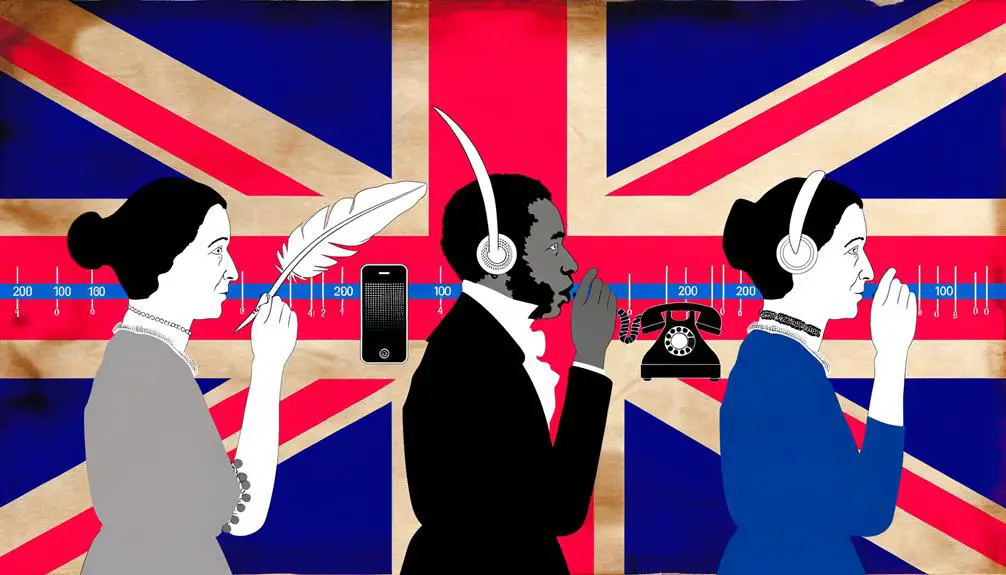
Delving into the historical context and evolution of 'ninny,' we find a word that has navigated through centuries, adapting to the changing landscapes of language and society. The term, originally emerging as a form of endearment or slight, evolved in its application and connotation based on the social, political, and legal environments of different eras. This evolution is prominently marked by the enactment of 'ninny legislation' in various periods, which sought to regulate speech considered derogatory or harmful, highlighting the word's shift from a benign to a more contentious term.
The gender implications of 'ninny' have also undergone significant transformation. Initially used without strong gender connotations, the term gradually began to reflect societal attitudes towards femininity and masculinity. In historical contexts, being called a 'ninny' might've suggested a lack of courage or intellect, traits traditionally associated with masculine ideals. Over time, as gender roles and perceptions shifted, so too did the implications of the term, often used to underscore perceived weaknesses or failings in line with evolving gender stereotypes.
Analyzing the historical trajectory of 'ninny' offers insights into how language mirrors societal changes and attitudes. The word's journey from its origins to its role in legislation and gender discourse exemplifies the dynamic nature of slang and its impact on social identity and norms. As 'ninny' evolved, it not only reflected changing linguistic preferences but also societal values, highlighting the intricate relationship between language, law, and gender throughout history.
'Ninny' in Modern British English
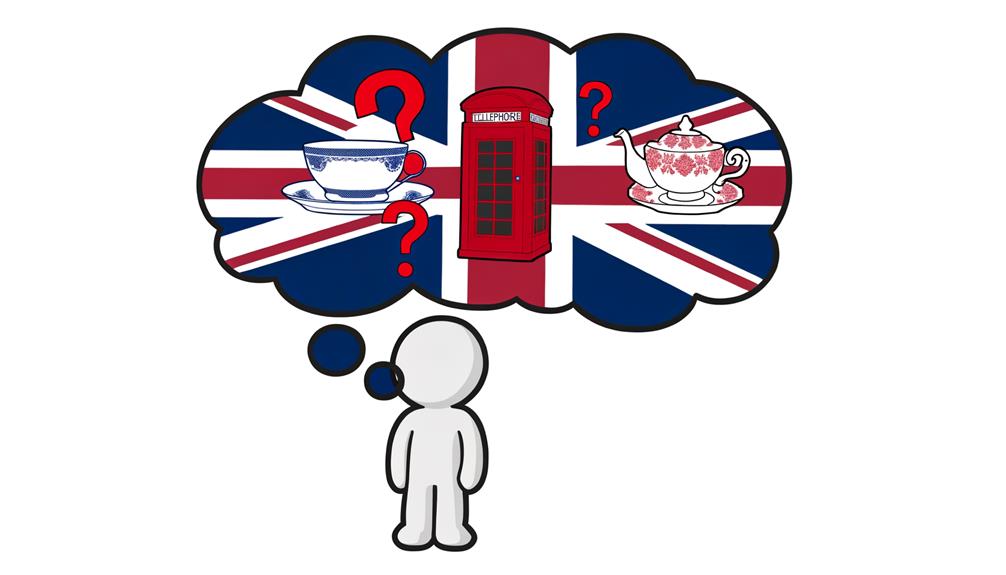
You must now assess how 'ninny' functions within contemporary British English, a term that encapsulates more than mere foolishness. Its evolution signifies shifts in societal attitudes and linguistic practices, revealing layers of cultural nuance.
Analyzing the contexts in which 'ninny' is deployed will expose its complex interplay with modern identity and social dynamics.
'Ninny' Usage Context
In modern British English, the term 'ninny' often pops up in conversations to describe someone perceived as lacking in wisdom or sense, illustrating a nuanced use that goes beyond mere name-calling to reflect social perceptions of intelligence and competence. The pronunciation of 'ninny' subtly varies across regions, yet its essence remains tied to identifying not just a lack of common sense but also a type of naiveté or foolishness in behavior.
Key behavioral examples include:
- Ignoring obvious social cues
- Repeating the same mistakes without learning
- Overestimating one's own knowledge or abilities
- Displaying a lack of critical thinking in discussions
Such behaviors, when frequently observed, cement the individual's reputation as a 'ninny', reinforcing stereotypes associated with the term in a contemporary context.
Evolution of Ninny
Understanding how 'ninny' has evolved in Modern British English requires examining its historical journey and the shifts in societal attitudes that have shaped its current usage.
Delving into ninny origins reveals a term steeped in a rich linguistic heritage, tracing back to expressions used to denote foolishness or lack of wisdom.
Through comparative linguistics, we observe how 'ninny' has evolved from its initial connotations to embody a lighter, often affectionate rebuke in contemporary dialogue.
This transformation underscores the fluid nature of language, reflecting broader societal trends towards a more nuanced understanding of insult and endearment.
As you explore 'ninny' within modern contexts, you're witnessing a fascinating example of linguistic evolution, where historical depth and social change converge to redefine how a word is perceived and utilized today.
Variations and Synonyms
You must consider how the term 'ninny' aligns with, yet distinctively diverges from, its synonyms across the British lexicon, reflecting nuanced interpretations of folly and naivety.
The exploration of regional usage differences reveals a tapestry of cultural and linguistic identities within the UK, where synonymous terms vary greatly.
This analysis not only enriches your understanding of British slang but also highlights the dynamic nature of language in conveying social attitudes and identities.
Common Synonymous Terms
Exploring the linguistic landscape of British slang, 'ninny' intersects with several synonymous terms, each reflecting nuances in connotation and usage. When delving into ninny comparisons, it's important to ponder the behavioral implications these synonyms carry. They offer a prism through which to view the subtleties of British social interactions and linguistic expressions.
Here are four closely related terms:
- Twit – conveys a lack of intelligence with a playful undertone.
- Numpty – emphasizes foolishness, often without malicious intent.
- Daft – highlights impractical or irrational behavior, with a mild reproof.
- Wally – suggests a clueless or inept person, with a tone of endearment.
Each term, while similar, carries its unique shade of meaning, enriching the tapestry of British colloquial speech.
Regional Usage Differences
Across the United Kingdom, regional dialects inflect the term 'ninny' with diverse synonyms and variations, reflecting local linguistic identities and cultural nuances. You'll find that dialectal acceptance plays a significant role in the proliferation of these terms.
Each region's unique slang adaptation not only enriches the linguistic landscape but also offers insights into societal attitudes and values towards the behaviors typically associated with being a 'ninny'. In northern England, variations might carry a more playful connotation, while in Scotland, the term might be infused with a slightly harsher tone, indicative of the regional approach to humor and critique.
This mosaic of interpretations underscores the adaptability of slang within the English language and highlights the intricate relationship between language, culture, and regional identity.
Regional Differences in Usage
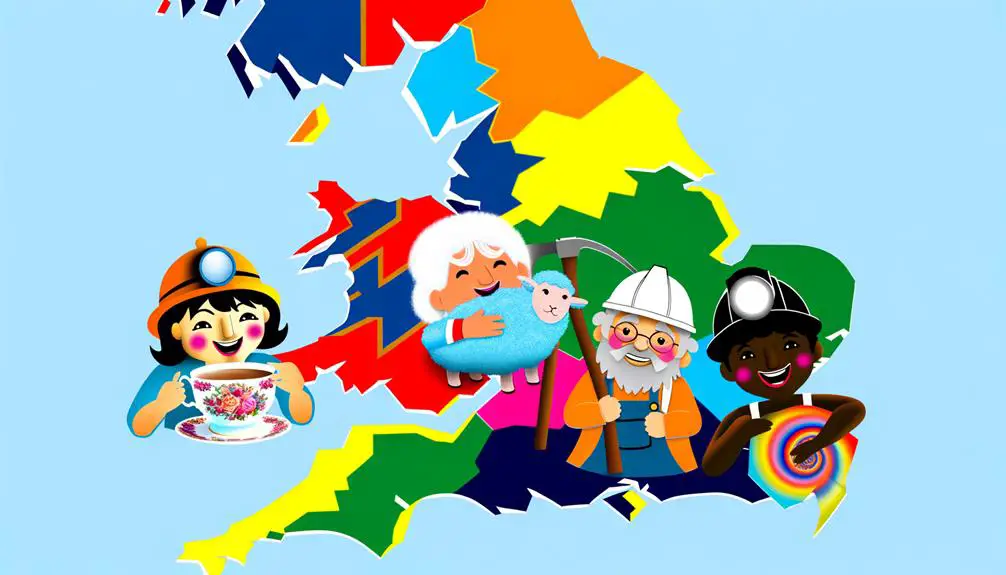
In the UK, the term 'ninny' exhibits notable regional variations in its usage and connotations, reflecting the diverse linguistic landscape of the country. The nuances of 'ninny' pronunciation and the cultural perceptions tied to it underscore the complexities of regional dialects and social attitudes.
- Pronunciation Variations: Across the UK, the way 'ninny' is pronounced can vary considerably. In some regions, the vowel sounds are elongated, while in others, the emphasis might be on the consonants. These pronunciation differences not only mark regional identity but also affect the term's impact and perceived offensiveness.
- Cultural Perceptions: The cultural weight of 'ninny' differs vastly across the UK. In certain areas, it's used affectionately, almost as a term of endearment, whereas, in other regions, it carries a sharper sting, implying serious criticism or disdain.
- Frequency of Use: Some regions exhibit a higher frequency of the term's usage. This frequency can reflect the social dynamics and the level of casualness in interpersonal communication prevalent in a particular area.
- Contextual Flexibility: The contexts in which 'ninny' is used can also vary regionally. In some areas, it's reserved for private conversations, while in others, it's freely used in public discourse.
Through these variations, 'ninny' serves as a fascinating lens to explore the interplay between language, identity, and culture within the UK. Understanding its regional differences enriches our comprehension of British slang and the linguistic nuances that define and differentiate communities across the country.
'Ninny' in Popular Culture
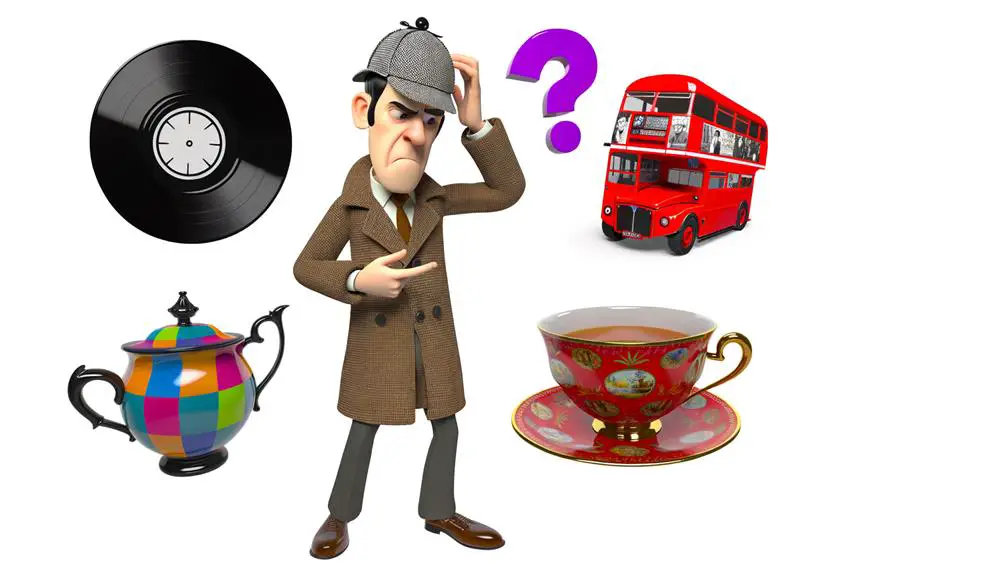
Delving into popular culture, you'll find that 'ninny' has woven its way through various media, from literature to television, reflecting societal attitudes and often serving as a mirror to the changing dynamics of language use. The term, rooted in British slang, has transcended its regional origins to become a staple in the global entertainment lexicon, depicting characters and scenarios that embody the essence of what it means to be a 'ninny.'
Cinematic ninnies, for instance, often serve as comedic relief or as pivotal characters whose naivete or foolishness drives the plot forward. These portrayals not only entertain but also offer a critique of societal norms and expectations, challenging audiences to reflect on the value of wisdom versus innocence. The presence of ninny merchandise further cements the term's place in popular culture, turning what might've been derogatory into something endearing. T-shirts, mugs, and posters emblazoned with beloved cinematic ninnies become symbols of affection for the characters' flaws, celebrating human imperfection.
Analyzing the trajectory of 'ninny' in popular culture reveals a fascinating evolution. Initially used to deride, its current usage in media often embraces a more nuanced understanding of human folly. This shift reflects broader societal changes towards empathy and acceptance, highlighting how language can evolve to mirror evolving cultural values.
In essence, the journey of 'ninny' from slang to a cornerstone of popular culture encapsulates the adaptive nature of language. It underscores the power of media to redefine words, turning them from mere descriptors into rich symbols of our collective human experience.
Understanding and Using 'Ninny' Correctly
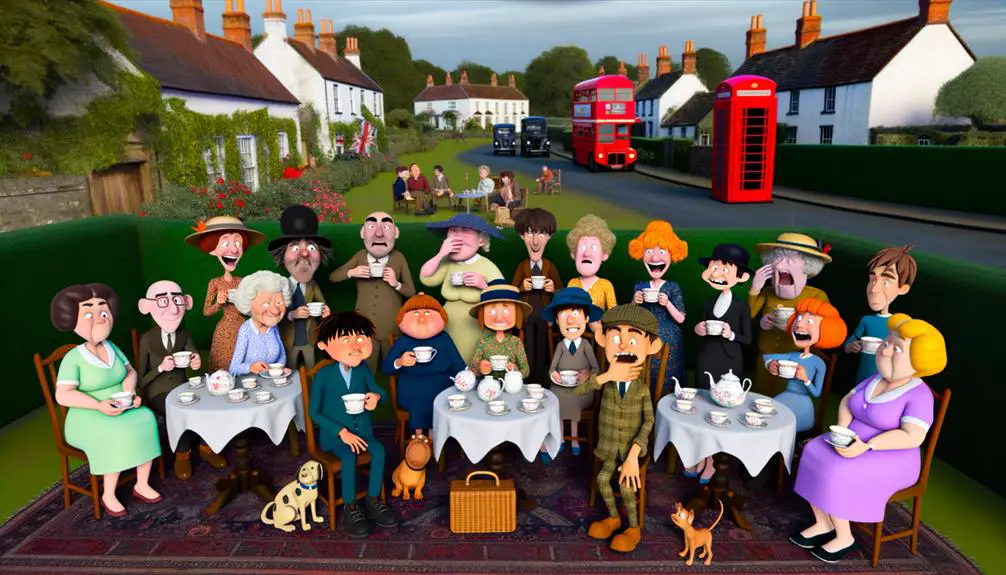
Having explored 'ninny' within the domains of popular culture, we now turn our focus to grasping its correct application and nuanced meanings in contemporary usage. Understanding the term 'ninny' involves not only its literal definition but also its cultural significance and appropriate contexts for use. This term, often perceived as benign or mildly disparaging, carries with it a rich tapestry of linguistic and cultural implications.
The pronunciation of 'ninny', with a stress on the first syllable ('NIN-nee'), is your first clue to its playful, yet potentially condescending tone. When used in conversation, the articulation itself can convey a range of emotions from affectionate teasing to outright disdain, depending on the speaker's intent and the relationship between the interlocutors.
To use 'ninny' correctly, consider the following guidelines:
- Evaluate the Relationship: Make sure that the term is used in a context where it's understood as playful or teasing, rather than hurtful.
- Consider the Setting: 'Ninny' is more appropriate for casual conversations among friends than in formal or professional environments.
- Gauge the Cultural Context: Be aware that its reception can vary greatly across different cultures and communities.
- Mind the Tone: The tone of voice when saying 'ninny' can alter its perceived meaning, from endearing to insulting.
The cultural significance of 'ninny' can't be understated. It's a term steeped in historical usage, evolving from a simple descriptor to a word laden with affection, humor, and sometimes, critique. Understanding its layers and leveraging them effectively requires a nuanced appreciation of language and context, ensuring that its use enriches communication rather than detracts from it.
Frequently Asked Questions
How Does the Perception of the Term 'Ninny' Differ Among Various Age Groups Within the Uk?
You've noticed generational slang evolution and cultural acceptance variations greatly influence how different age groups in the UK perceive 'ninny.' Younger generations mightn't use or even understand the term as older ones do, reflecting a shift in language and cultural references.
This discrepancy highlights the dynamic nature of language, where words gain, lose, or change meanings over time, impacted by societal changes and the digital age's rapid communication advancements.
Are There Psychological Impacts Associated With Being Frequently Labeled as a 'Ninny' in Social or Educational Settings?
If you're often called a 'ninny' in social or educational circles, it's not just water off a duck's back. This frequent labeling can deeply affect your self-esteem, potentially leading to a spiral of negative self-perception.
Additionally, the sting of such a label might isolate you socially, as peers may distance themselves, fearing association. This isolation further compounds the self-esteem effects, painting a grim picture of the psychological toll taken.
Can the Use of 'Ninny' in Workplace Communication Be Considered as Informal Language or Potentially as Workplace Harassment?
In workplace communication, using 'ninny' can toe the line between informal language and potential harassment, depending on the context and the company's harassment policies. You must consider workplace etiquette and the existing cultural environment.
If it's used in a demeaning manner, it could violate harassment policies, affecting the professional atmosphere. Analyzing its use requires understanding both the intention behind the word and the recipient's perception, ensuring a respectful and inclusive workplace.
How Has the Digital Age and Social Media Platforms Influenced the Spread and Understanding of Terms Like 'Ninny' Outside of the Uk?
In today's digital era, globalization effects and social media platforms have dramatically influenced language evolution, including the spread of terms like 'ninny' beyond the UK.
You're witnessing a juxtaposition of traditional linguistic boundaries melting away as these platforms foster a global exchange of slang.
This digital proliferation not only broadens your understanding of such terms but also nuances how they're perceived globally, reflecting a fascinating convergence of cultures and languages in our interconnected world.
In What Ways Do Non-Native English Speakers or International Communities Interpret or Misuse the Term 'Ninny' When Engaging With British Culture or Language?
You might find yourself stumbling over cultural nuances and language barriers when you immerse yourself in British culture or language.
The term 'ninny' is a prime example. As a non-native English speaker or someone from an international community, you could misinterpret or misuse 'ninny' due to unfamiliarity with its subtle connotations.
It's not just about the direct translation but understanding the context and emotions it carries in various British social settings.
Conclusion
So, have you grasped the nuanced journey of 'ninny' through the annals of British vernacular?
It's a term that has morphed from its origins, reflecting societal shifts and regional variances.
Whether in jest or mild rebuke, its usage today remains a tribute to the dynamic nature of language.
Understanding 'ninny' isn't just about knowing a word; it's about appreciating the rich tapestry of English slang.
Embrace it, but do you really want to be called one?







